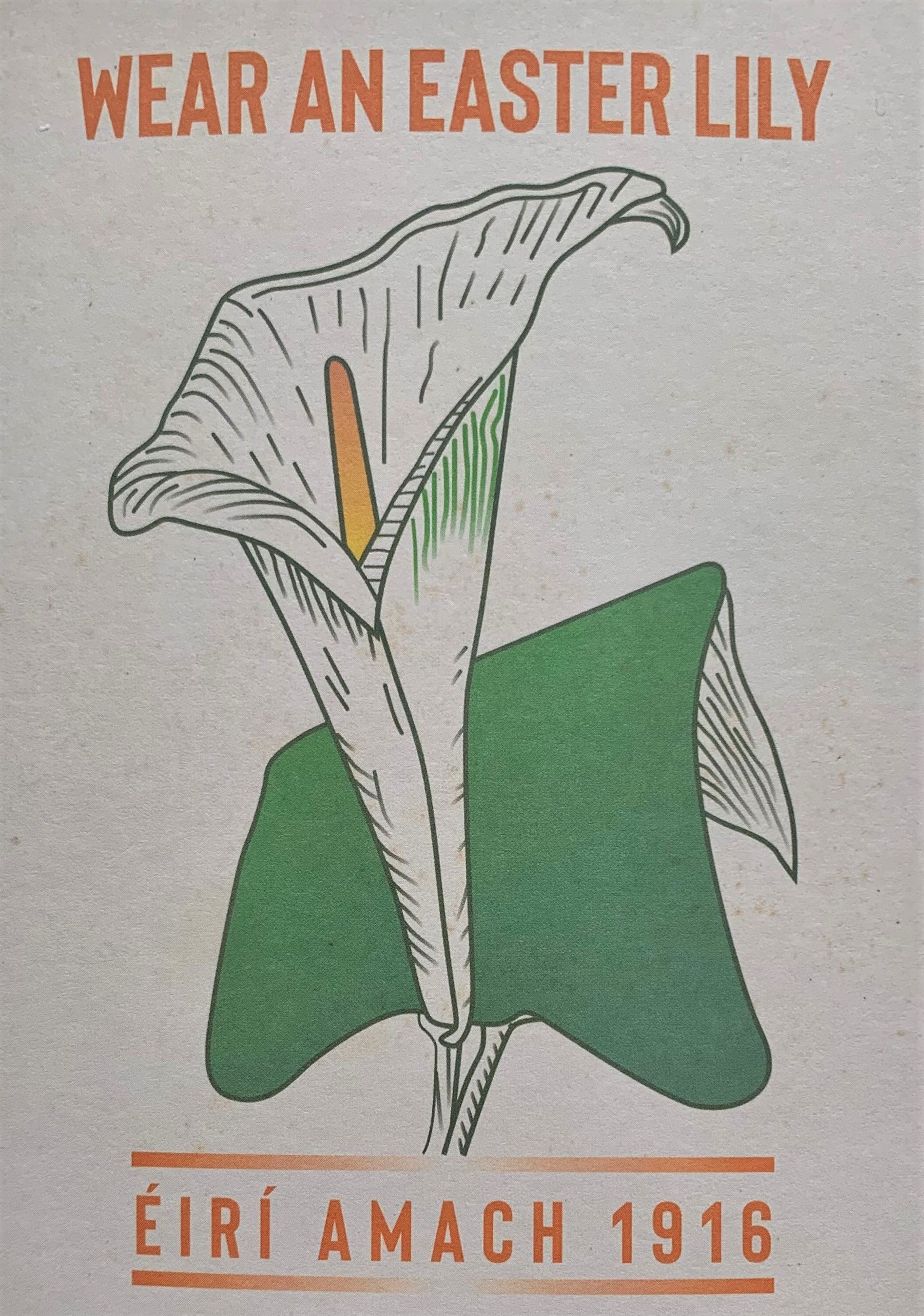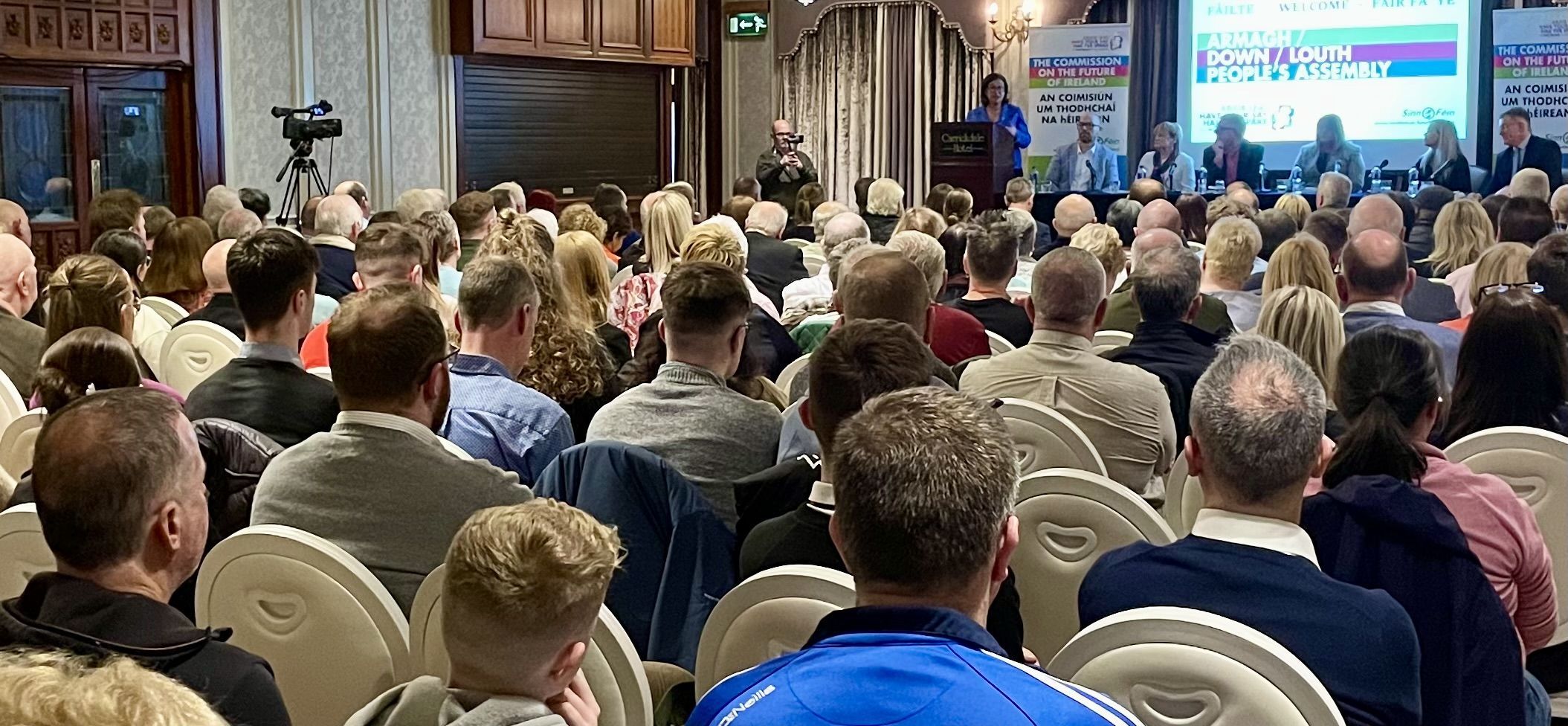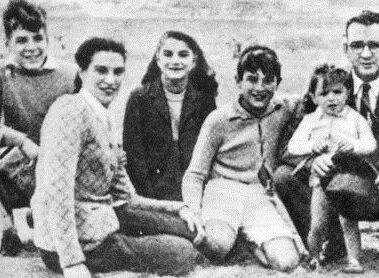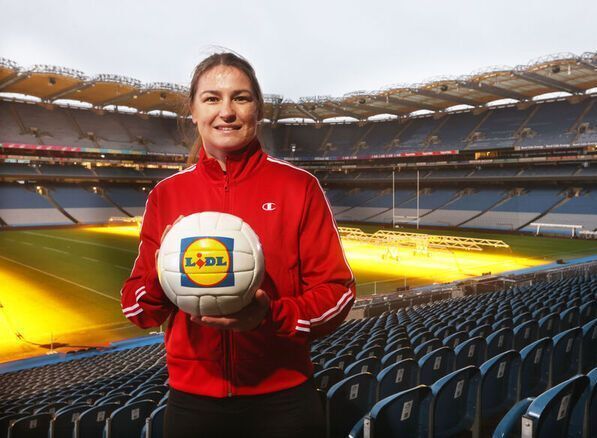I am writing this column in New York. Richard and I are here for the weekend working on my remarks for Monday night when President Bill Clinton and I will share reflections on the Good Friday Agreement negotiations and developments since then. I will return to this in next week’s column.
President Clinton played a critical role in the build up to the Agreement, encouraged and supported by Irish America. He was at the end of the phone as agreement was reached and has been an enabler of our process ever since. So too has Hilary Clinton.
Our Monday night event is in Cooper Union Great Hall. I’ve spoken there once before. So has Abraham Lincoln, Barack Obama, Bill Clinton and a range of other renowned speakers from the arts, science, politics and activist sectors. Just saying.
"If you can make it here you can make it anywhere," says Richard.
Our last event before leaving Ireland for New York was a Peoples’ Assembly in the Carrickdale Hotel in Carrickcarnon, right on the border in County Louth. This Peoples’ Assembly was an opportunity for citizens from the Armagh, Down and Louth border region to have their say on the future of Ireland.
The ill-effects of living under British rule are keenly felt in this area and the implications of Brexit casts a long shadow. So too does the British government’s Legacy Bill of Shame and its mean spirited "Borders and Nationalities Bill" which makes it mandatory for visitors travelling into the North from the South to firstly obtain an Electronic Travel Authorization. This is the latest threat from London to the people here particularly in this region.

The Carrickdale event was the fourth organized by Sinn Féin’s Commission on the Future of Ireland. It was chaired by Conor Patterson of Newry and Mourne Enterprise Agency. The panel included Reverend Karen Sethuraman; ICTU Assistant General Secretary Gerry Murphy; Mairéad McAlinden former CEO of the Southern Health & Social Care Trust and Aidan Browne of Dundalk’s DkIt's Regional Development Centre.
They gave valuable insights and their contributions were well worth listening to. So also were contributions from the audience. They were thoughtful, spirited, informed and very interesting for me, as someone not from that region, as well I am sure for everyone else.
It was standing room only and the packed gathering heard Uachtarán Shinn Féin Mary Lou McDonald open the event.
In a wide ranging address, Mary Lou spelt out the difficulties caused by partition and the opportunities which will be created by ending division and she addressed the importance of reaching out to our unionist neighbors. She said: “We want to encourage popular grass roots participation in that ongoing conversation about our shared future. Everyone should have their say. There are many people in this region who are unionist. The Orange was founded in neighboring County Armagh.
That tradition is reflected in our national colors. This is the place that we all call home. Our resolve is to make it a better place for all, unionists are our neighbors and they should also be our friends’.
This column hopes that Jeffrey Donaldson’s DUP officer board picked up on this.
The Sinn Féin President extended the hand of friendship to them when she said: “To those from the unionist culture I extend a sincere welcome – the new Ireland must be a warm house for all and your traditions and beliefs must be respected and cherished. I invite you especially to be part of the conversation and for us all to plan for the future together … Conversations are happening across the country – in our places of work, in our universities, as we drop our children at the school gates and at the match on Sundays.”
In recent years a vast amount of academic research, new studies and books on all aspects of reunification, have been produced. They all urge the Irish government to begin planning and preparing for constitutional change and there is now an urgent imperative for the government to establish a Citizens Assembly to prepare the groundwork in advance of a unity referendum.
As Mary Lou said: “This is an exciting time for us all; filled with opportunity and hope for a better future. That’s why we need to get it right. Our new constitutional national democracy will emerge from a phased transition and that is why planning and preparation should begin now. Grassroots communities should be involved at the beginning of that process, not at the end.”
The Sinn Féin President pointed out that the Commission on the Future of Ireland is about inviting working people, trade unionists, business owners, community activists, women, our youth, LGBTQ people, Gaeilgeoirí, academics, our new communities, Travelers, those with disabilities and others to have their say on the process of change.
Speaking directly about the challenges facing the border region Mary Lou said: “Our shared challenge is to create a future which is warm and welcoming for everyone and where the potential prosperity of areas like this border region can be fully unlocked.”
So there you have it. Perhaps when this column returns to Ireland the DUP attitude to participating in the Northern Assembly will be clearer. Or, perhaps not?
SEEKING A PATHWAY
This week, Lucilita Bhreatnach, one of our negotiators at Good Friday 1998 recalls these events.
Each one of us involved in the negotiations has their reminiscences of the days leading up to the Good Friday Agreement. Also, of the preceding years, talks about talks and then, the actual talks with the three governments, Dublin, London and the White House.
We were seeking a pathway into the future. Negotiations involve taking risks, listening to the other side and being willing to move into a new space. Every obstacle we faced had to be overcome or talks would have broken down on many occasions.
Our negotiation teams comprised party members, including ex-prisoners and elected representatives. We were pursuing a peaceful and democratic solution to an undemocratic situation. England's policy in Ireland was still resisting that democratic outcome.
In the late hours of April 1998, there were tensions and bad tempers, emotional and technical problems; loads of bi-laterals and papers galore. The party leadership had resolved to engage and to reach an agreement, if possible based on the democratic principles governing our outlook on the negotiation process.
At some stage Bairbre De Brún, Alex Maskey and I found ourselves in a room with officials checking on papers late into the night. We engaged on human rights issues, a Bill of Rights, policing and the Irish language.
In a corridor, I bumped into Bertie Ahern and he said ‘tell Martin and Gerry I have told them we are not giving any more.’ I put an Easter lily into the palm of his hand and offered my sympathies, as his mother had died that week.
Some days earlier, I drove to Dublin to be with my daughter for the birth of her first child, Aoife. Back in Stormont, Bríd Curran gave me a card signed by the team for Aoife.
There were phone calls back and forth with the prisoners. It felt surreal at times. We knew we were on the cusp of something big but also that we would not get everything we wanted.
We waited all night long. At some stage Mitchel McLoughlin, Bairbre and I addressed the media outside in the freezing snow. We tried to keep hope alive but the talks were confidential and none of us wanted any damaging leaks to the media. Bairbre and I did the international media, in Spanish and French, agus as Gaeilge.
Back inside, Siobhán and I sat next to a photocopying machine in the hall ready to copy the all-important document once it arrived when the Unionist reached a decision.
There were phone calls back and forth with the prisoners. It felt surreal at times. We knew we were on the cusp of something big but also that we would not get everything we wanted.
Gerry and Martin appeared, documents were handed out, which we all read. No time then for much sleep for we had to get ready for the plenary session chaired by George Mitchell. I had met him in the hall and he shook my hand saying ‘you did very well’, (meaning all of us I am sure).
When formalities were over one of the loyalists told me he had studied Irish and got a Fáinne while in jail.
Twenty-five years later, the Good Friday Agreement has yet to be fully implemented along with other agreements. I look forward to a New Ireland that is multicultural, pluralist and non sectarian based on equality with full inclusion of the Unionist and other communities in Ireland.

EASTER LILY
Easter is only days away. It is a time when tens of thousands of people across the island, and internationally, will attend Easter commemorations to mark the anniversary of the Easter Rising and the Proclamation of the Republic. The symbol of our enduring commitment to those ideals is the Easter Lily.
The first Easter Lily badges were designed in 1925 by Cumann na mBan. The dual purpose of the Easter Lily was to raise money for the Republican Prisoners’ Dependents Fund and to honour the sacrifice made by the men and women of the 1916 Rising. The original Easter Lily badge was hand-made.
So, wear an Easter Lily this weekend with pride, and in remembrance of past generations.








